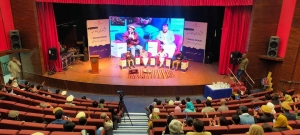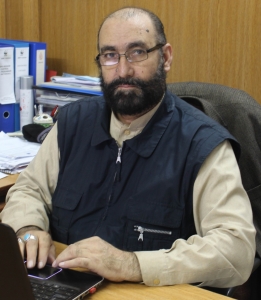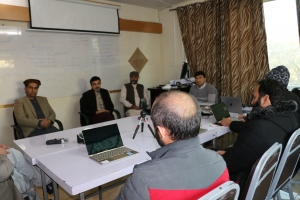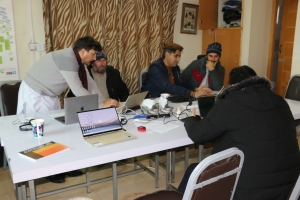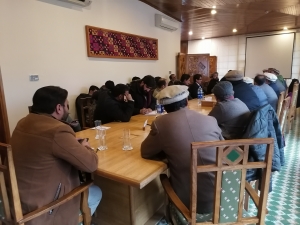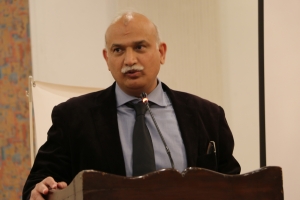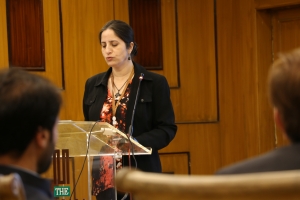FLI joined hands with one of its partner organizations in organizing a literary congregation in Gawarbati language. Organized by Al-Qalam, a community based organization, the poetry session took place last week in Arandu Valley of Chitral. The purpose of holding the event in the community was to promote Gawarbati poetry and contribute to peace building by arranging a literary get-together in this border region. More than a dozen poets of Gawarbati language presented their poetries in the event. Around 80 people including young, teachers, community elders, literary people and political activists attended the event.
Belonging to the Indo-Aryan group, the Gawarbati language has been declared ‘severely endangered’ by UNESCO, and the major cause of its endangerment is a prolonged Afghan war in its vicinity. This language is spoken by 4000 people living alongside Kunar River, adjacent to Pak-Afghan border area near the village of Arandu in the Chitral District of Pakistan. The literary activities are being used to hold the community involved in peace building activities and encourage the youth to come out of the harsh past, they went through and get involved in activities of their interest. Such activities are also important to strengthen cultural and linguistic diversity of the country.
The poetry event drew the attention of many Gawarbati youth who showed great curiosity to know how to work for their culture and language, alongside motivating other people to use their own language for expressing their feelings and try the poetry in their own language. A senior Gawarbati writer, Mullah Adina Shah, who has published Gawarbati Dictionary was honored in the event for his literary work in the language. Adina Shah has been producing literature in Gawarbati since long and motivating his fellow people within the community.
As a part of language preservation and promotion, FLI has been encouraging its partners from the ethnolinguistic communities of the north Pakistan to increasingly organize poetry session in their localities, as we find the poetry sessions useful to strengthen the literature development in the lesser known languages. Through poetry, the culture is beautifully expressed motivating the fellow language speakers to follow suit. Therefore, we have started stressing upon our partners in order to increase literary activities, especially poetry sessions in maximum language communities in our target region.



